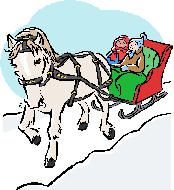 (Deb and Cantillon)
(Deb and Cantillon)Study Questions For The Final Exam
ECON 307
These questions are not designed to take the place of studying your notes and the reading assignments. Do not e-mail me and ask me to answer all or some of these questions for you. If you have missed class, it is your responsibility to get the notes from another student. Once you have answered these questions yourself, if you are unsure of any of your answers, let me know and I will tell you if you are correct or not. Don't be afraid to ask me questions, I just want you to try to answer the questions yourself first.
Topic: Socialists
Define Socialism (as Mill did and as most economists do today).
Explain some major "themes" among the socialists with respect to how they differed from the Classical School in general or just in terms of their method regarding:
a. the emphasis on the individual vs. classes or society in general
b. their view of history and how it progressed
c. their view of property rights and wealth distribution
d. their view of the relationship between workers and capitalists
e. their view of the self interest axiom (assumption about human behavior) and the idea of association or cooperation (and competition)
Topic: Marx
Marx's ideas regarding "dialectics" came from which philosopher?
Marx's ideas regarding "materialism" came were influenced by which philosopher?
What is the "prime mover of history" according to Marx ? Because of this prime mover -- all culture, law, etc. follows from it. Explain.
Provide an example of something that "alienates" us from our true selves (under capitalism) according to Marx?
According to Marx, the structure of society owes its origin to what?
Provide one critique of the neo-classical rational choice model? We talked about three in class.
What does Marx mean by "spiritual alienation"?
What does Marx mean by "social alienation"?
How do "adaptive preferences" fit into spiritual alienation?
How does Marx define capitalism?
Marx saw capitalism as being very productive -- necessary and making collectivization possible. But the capitalists would not go quietly - why?
What causes the periods of depression in capitalism, according to Marx?
Marx saw capitalism as a system that exchanged commodities. What are the four properties that distinguish commodities to Marx?
According to Marx, history progresses through or because of what?
Topic: The Marginal or Subjectivist Revolution
What is a utility function and who is credited with "inventing" it?
What is Jevon's equimarginal principle? Just the general idea of it is fine.
List Jevon's 4 circumstances determining utility.
In formulating general equilibrium analysis, Walras had two steps -- what are they?
What is the Walrasian auctioneer? How does "tatonnement" (groping) fit into your answer?
What modern day model did the Walrasian general equilibrium theory lead to? Who is credited for it?
Topic: Austrian Economics
Topic: The Economic Calculation Debate
What was the "first" debate between Hayek and Keynes all about?
In the economic (socialist) calculation debate between Hayek and Keynes - what was the main question being debated?
According to Hayek planners will fail for two reasons -- a knowledge problem and an incentive problem -- explain both.
What are the two types of knowledge Hayek talks about? (this relates to the above question).
According to Hayek, what is the basic economic problem we need to solve and what, in his opinion, goes a long ways towards solving it? In other words, what role do prices, profits and losses play in Hayek's emphasis on coordination in society and why?
Topic: The Move To Neoclassical Economics
Topic: Keynes
What are the central ideas of the Keynesian school?
What are the policy implications of the Keynesian school?
What is the major cause of a business cycle (drop in AD) according to Keynes?
The Classical school said that with flexible interest rates Savings = Investment so therefore, AD = AS in the long run. How did Keynes respond to this?
What determines Investment according to Keynes?
What is the Keynesian multiplier theory? What is the marginal propensity to consume? Save? - and how do they relate to the multiplier?
How does the multiplier relate to the Keynesian idea that the government can stimulate AD through government spending or tax cuts, for example?
What is the basic aim of Keynesian fiscal policy?
Why did Keynes call for deficit spending to stimulate the economy -- why not simply have a balanced budget? Explain.
Explain the short run Phillip's curve theory. How did Friedman criticize this theory? Show graphically and in words.
What happened that put a damper on the Phillip's curve theory?
What do the New Keynesian economists try to do?
What do the Post Keynesians try to do?
BE sure to read the assigned readings - look over the homework and in class exercises!
It has been fun - have a great
break!  (Deb and Cantillon)
(Deb and Cantillon)